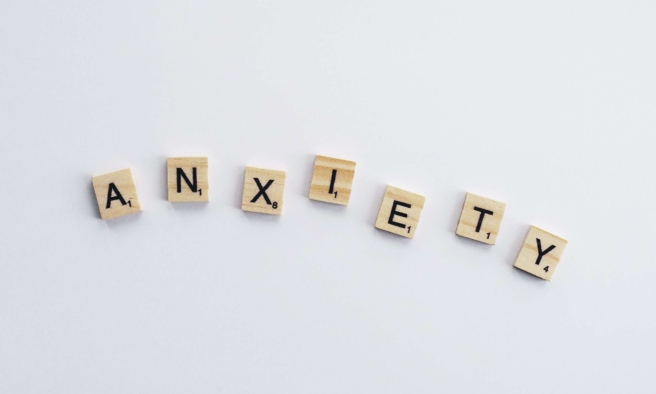Introduction
Anxiety, often portrayed as a negative emotion, is a complex state that holds within it a multifaceted role in our lives. While it’s commonly linked to stress, discomfort, and unease, delving deeper into its intricacies reveals that anxiety can sometimes be a necessary and healthy feeling. Contrary to its negative reputation, anxiety serves as a natural alarm system that can offer several surprising benefits across various aspects of our well-being. In this exploration, we’ll delve into the evolutionary origins of anxiety, its role in enhancing focus and decision-making, its potential to drive personal growth, and the significance of maintaining a healthy balance in our approach to it.
Evolutionary Roots: The Survival Instinct
Anxiety isn’t just a modern phenomenon; it has deep evolutionary roots that stretch back to the earliest days of human existence. Imagine our ancient ancestors navigating a world fraught with potential dangers, ranging from predators to environmental threats. In such a context, anxiety served as a vital survival instinct. When confronted with a potentially life-threatening situation, the body’s “fight or flight” response would kick in, flooding the system with adrenaline and heightening awareness. This physiological response enabled individuals to react swiftly and appropriately, either by confronting the threat head-on or making a rapid escape.
Anxiety’s Role in Focus and Attention
In today’s fast-paced world, where challenges often manifest as deadlines, presentations, and exams, anxiety can offer unexpected benefits. While excessive anxiety can indeed hinder performance, a moderate level of anxiety can act as a cognitive enhancer, boosting focus and attention. Think about how, when faced with a demanding task, a hint of anxiety sharpens your awareness. This heightened state of alertness can lead to improved problem-solving skills, increased productivity, and a heightened sense of engagement with the task at hand.
The Connection Between Anxiety and Problem Solving
At its core, anxiety is discomforting. However, this very discomfort can become a catalyst for driving us to tackle problems head-on and find solutions. Imagine encountering a situation that triggers anxiety due to an unresolved issue. In such cases, your brain tends to zero in on resolving the problem, often leading to creative thinking and the formulation of innovative strategies. Essentially, anxiety compels us to confront obstacles, address challenges, and find resolutions that might have otherwise gone unnoticed.
Anxiety as a Catalyst for Growth and Adaptation
The concept of personal growth often thrives beyond the boundaries of our comfort zones, and anxiety is frequently the catalyst that propels us into these uncharted territories. By nudging us beyond familiar boundaries, anxiety encourages us to confront new challenges and develop new skills. Stepping out of our comfort zones, even when anxiety accompanies us, often results in increased self-esteem, a sense of accomplishment, and greater resilience. Through this lens, anxiety transforms into a motivational force that drives personal growth and adaptation in our lives.
Evaluating Risk: Anxiety’s Decision-Making Role
Anxiety also plays a pivotal role in assessing risks and making decisions. When faced with choices that carry significant consequences, anxiety prompts us to consider potential outcomes more deeply. This heightened sense of caution encourages us to weigh the advantages and disadvantages of each option, enabling us to make more informed decisions. Whether it’s selecting a career path, navigating personal relationships, or managing finances, anxiety ensures that we approach decisions thoughtfully and with care.
The Social Side of Anxiety: Empathy and Connection
While anxiety is often perceived as an individual experience, it can also significantly impact our social interactions. Experiencing anxiety can heighten our sensitivity to the emotions of others, thereby increasing our capacity for empathy and social awareness. This heightened awareness of others’ feelings equips us to navigate social situations with greater sensitivity and understanding. Ultimately, this can lead to more profound connections, improved communication, and a greater sense of belonging within our communities.
Motivation for Positive Change
When chronic anxiety about specific aspects of life becomes a recurring theme, it can serve as a powerful motivator for positive change. The discomfort of anxiety can propel us to address underlying issues, make necessary adjustments, or seek professional help. This proactive approach to managing anxiety can lead to improved overall well-being and a sense of control over our lives.

Balancing Act: Managing Anxiety for Optimal Well-Being
While anxiety offers numerous benefits, it’s crucial to maintain a balance. Excessive and chronic anxiety can have adverse effects on both mental and physical health. Managing anxiety effectively involves recognizing when it’s serving a productive purpose and when it’s becoming overwhelming. Engaging in mindfulness practices, employing relaxation techniques, and seeking professional support when needed are all strategies that can help us navigate the fine line between helpful anxiety and detrimental distress.
The Anxiety contain different types including :
- Generalised anxiety disorder (GAD): This is a special condition that can be defined as excessive worry and anxiety about a variety of things.
- Panic disorder: This is a condition characterised by sudden and intense episodes of fear and anxiety.
- Social anxiety disorder: This is a fear of social situations in which you may be judged or embarrassed.
- A Phobia: It will be a fear of something it can be anything and vary from person to person like height or dark.
- Post-traumatic stress disorder (PTSD): This is a condition that can develop after a person experiences a traumatic event, such as a car accident or a natural disaster.
The symptoms of anxiety can vary depending on the type of anxiety disorder, but they may include:

- Worrying about things that are unlikely to happen
- Feeling nervous or restless
- Having trouble concentrating
- Having trouble sleeping
- Having physical symptoms such as sweating, nausea, or a racing heart
- Avoiding situations that make you anxious
If you are experiencing anxiety that is causing significant distress or impairment, it is important to seek professional help. A therapist or counsellor can help you to understand your anxiety and to develop coping mechanisms for dealing with it.
There are many things you can do to manage anxiety in a healthy way. Here are a few tips:
Finding your triggers:
The important and first step is to managing anxiety is to identify what triggers it. After identifying your triggers, you can take progressive steps to either stay clear of them or construct effective strategies to manage their impact.
Engage in relaxation practices:
Embrace a variety of relaxation methods to alleviate anxiety. Techniques like deep breathing, mindfulness meditation, and yoga can be instrumental in diminishing feelings of unease.
Get enough sleep:
When we are well-rested, we are better able to cope with stress and anxiety.
Eat a healthy diet:
Eating a healthy diet can help to improve our overall mood and well-being, which can also help to reduce anxiety.
Exercise Daily:
Exercise is a perfect way to reduce stress and anxiety. It releases endorphins, which can have many mood-improving effects.
Talk to someone:
Talking to a therapist or counselor can help you to understand your anxiety and to develop coping mechanisms for dealing with it.
Conclusion
In a world where anxiety often bears a negative label, it’s essential to recognize its multifaceted nature and the potential benefits it can bring to our lives. From its evolutionary origins as a survival instinct to its contributions in problem-solving, decision-making, and personal growth, anxiety offers surprising advantages. By embracing its potential for positive change and employing strategies to manage its effects, we can harness anxiety’s power to enhance our overall well-being. The next time you experience a surge of anxiety, consider it a reminder that your natural alarm system is at work, guiding you towards heightened awareness, personal development, and resilience.
Read More Amazing Blogs like these –> LINK
If you wanna read informative blogs –> LINK
If you wanna read health blogs –> LINK




Hi Neat post There is a problem along with your website in internet explorer would test this IE still is the market chief and a good section of other folks will pass over your magnificent writing due to this problem
We just wanted to take a moment to acknowledge all the hard work and effort you’ve been putting in lately. Keep up the amazing job, you’re doing great!
Give a round of applause in the comments to show your appreciation!